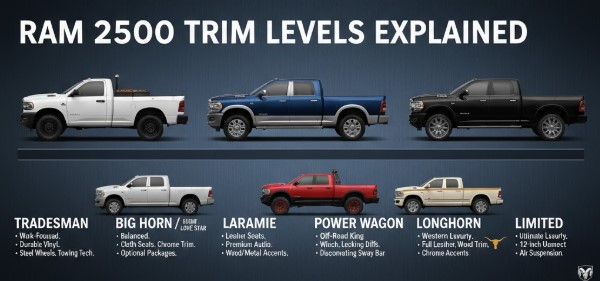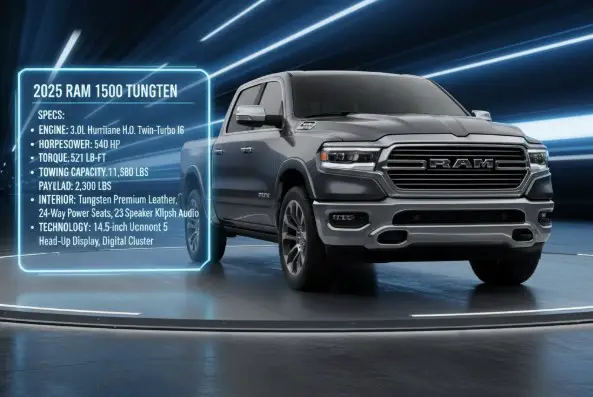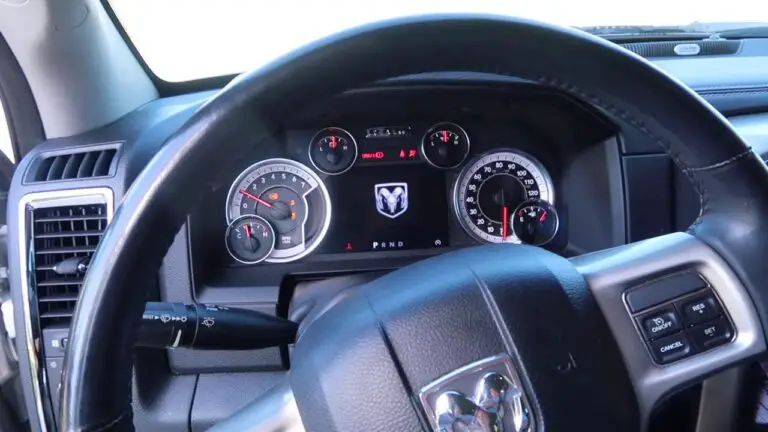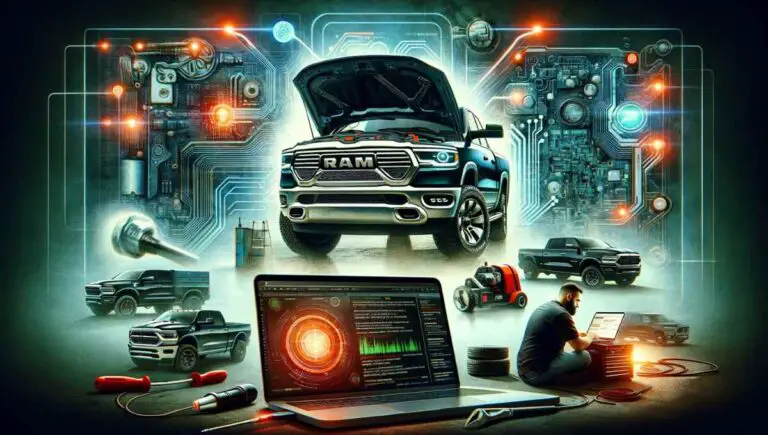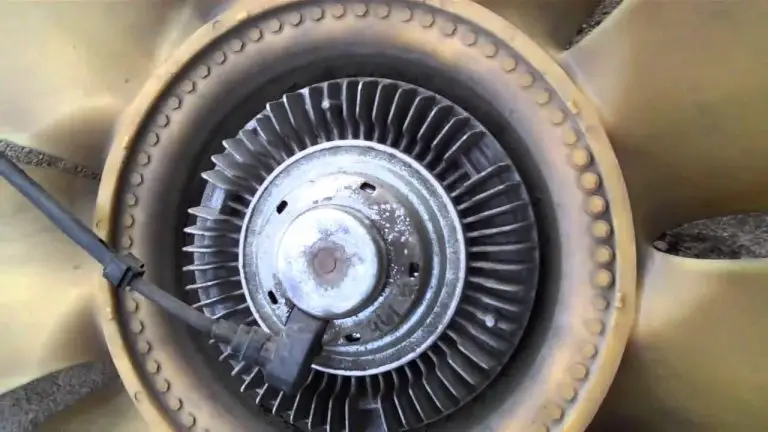Dodge Ram Check Engine Light But No Code
If your Dodge Ram’s check engine light is on but there are no codes, it could be caused by a number of issues. The most common cause is a loose or faulty gas cap, but it could also be a sign of a more serious problem like an exhaust leak or faulty sensor. If the light is accompanied by other symptoms like poor fuel economy or engine misfires, you should have your truck checked out by a mechanic as soon as possible.
If you have a Dodge Ram and the check engine light is on but there are no codes, it could be a number of things. It could be something as simple as a loose gas cap or a problem with the oxygen sensor. If you have ruled out those possibilities, it could be something more serious like a malfunctioning catalytic converter.
Regardless of the cause, it’s important to get the problem checked out by a mechanic as soon as possible to avoid further damage to your vehicle.

Credit: www.youtube.com
Why is My Check Engine Light on But There are No Codes?
If your check engine light is on, but there are no codes, it could be caused by a variety of things. It could be a faulty sensor, a loose gas cap, or a problem with the emissions system. If the light is flashing, it could be an indication of a more serious problem, and you should take your car to a mechanic as soon as possible.
Can Check Engine Light Come on And Nothing Be Wrong?
Yes, the check engine light can come on and nothing be wrong. There are a few reasons why this might happen. Sometimes it’s as simple as a loose gas cap, which is an easy fix.
Other times, it could be a more serious issue like a faulty oxygen sensor. If the light is coming on and there doesn’t seem to be any issue with the car, it’s best to take it to a mechanic and have them run a diagnostic test to figure out what’s going on.
Why is Dodge Ram Check Engine Light On?
If you’re like most people, you probably freak out a little when your check engine light comes on. Your heart sinks and you start to worry about how much it’s going to cost to fix whatever is wrong. But before you start panicking, take a deep breath and relax.
There are a lot of reasons why your check engine light could be on, and not all of them are expensive to fix.
One of the most common reasons for the check engine light to come on is because your gas cap is loose or damaged. This might not seem like a big deal, but it can actually cause your car to lose up to 30% of its fuel efficiency.
So if you’ve been driving around with a loose gas cap, that could be why your check engine light is on. Luckily, this is an easy and inexpensive fix – just tighten up your gas cap or replace it if it’s damaged.
Another common reason for the check engine light to come on is because your oxygen sensor needs to be replaced.
The oxygen sensor monitors the amount of oxygen in your exhaust and sends signals to the computer so it can adjust the air/fuel mixture accordingly. If the sensor isn’t working properly, it can throw off the air/fuel mixture and cause your vehicle to run less efficiently (and produce more emissions). Replacing an oxygen sensor usually costs between $200-$400 depending on the make/model of your vehicle.
Finally, one other common reason why your check engine light may be illuminated is due P0455 EVAP system code which means there’s a leak in the evaporative emission control system (EVAP). This system helps keep gasoline vapors from escaping into the atmosphere by storing them in a charcoal canister until they can be burned off during normal operation of the engine. A small leak in this system can cause vapor pressure within the fuel tank to drop which then triggers the check engine light.
.
Why is My Car Not Reading Codes?
If your car is not reading codes, there are a few possible reasons. First, make sure that the code reader is properly connected to the diagnostic port in your car. If the connection is loose, it may not be able to read the codes.
Another possibility is that the code reader itself is defective. Try using a different code reader to see if that makes a difference. Finally, keep in mind that some cars require special procedures for accessing the diagnostic codes.
Consult your owner’s manual or an automotive technician for more information.
How to Read Dodge Truck Check Engine Codes Without a Scan Tool
Check Engine Light on But Nothing Wrong
If you’re like most people, you see the check engine light come on in your car and your first thought is “uh oh, something’s wrong.” But then you wait a few minutes and the light goes off. So what gives?
Turns out, there are a few reasons why this might happen. It could be a false alarm caused by a loose gas cap or a faulty sensor. Or it could be an indication of a more serious problem that will require some investigation to figure out.
If the light comes on and then goes off again soon after, it’s probably nothing to worry about. But if it stays on, or if it comes on and off repeatedly, it’s worth taking your car to a mechanic to have it checked out. They’ll be able to hook up a diagnostic tool to figure out what’s going on and let you know if anything needs to be fixed.
In the meantime, don’t ignore the check engine light just because you think it might be nothing. It could save you from bigger problems down the road!
Codes Stored But No Check Engine Light
If you have a car made in the last 20 years, it has an on-board diagnostics system that monitors the engine for problems. When the system detects a problem, it turns on the check engine light to warn the driver. The check engine light comes on and stays on until the problem is fixed.
Most modern cars also store codes in their computer memory that can be read with a scan tool. These codes can tell you what is wrong with the car even if the check engine light is not on. That’s because the check engine light only comes on when there is a problem that needs immediate attention.
But sometimes there are codes stored in memory that indicate a potential problem that might not need immediate attention.
If you take your car to a mechanic and they hook up a scan tool, they might find one or more codes stored in memory even though the check engine light is not currently lit. In most cases, these stored codes are not cause for concern and can be ignored.
However, if you are experiencing symptoms like poor fuel economy or drivability problems, it’s worth getting these codes checked out to see if they are related.
Cummins Check Engine Light But No Codes
If you have a Cummins diesel engine, you may have experienced the dreaded “check engine” light. But what does it mean when there are no codes?
The check engine light can come on for a variety of reasons.
Sometimes it’s something as simple as a loose gas cap. Other times, it could be an indication of a more serious problem.
If there are no codes associated with the check engine light, it could mean that the system is not able to read any codes.
This could be due to a faulty sensor or wiring issue. If this is the case, it’s important to get the problem diagnosed and repaired as soon as possible.
In some cases, the check engine light may come on even though there are no codes stored in the system.
This could be due to a intermittent problem that is not currently being detected by the system. If this happens, it’s important to take note of any conditions that seem to trigger the light (i.e., low fuel level, rough idling, etc.) so that you can provide this information to your mechanic.
4Th Gen Ram Check Engine Light
If you own a 4th generation Ram truck, you may have noticed the check engine light has been coming on more frequently. There are a few things that could be causing this and it’s important to get to the bottom of it so you can keep your truck running smoothly.
One possibility is that the light is simply coming on because of a loose gas cap.
This is an easy fix – just tighten up the cap and see if the light goes off. If not, there could be something more serious going on.
Another possibility is that your oxygen sensors are dirty or faulty.
These sensors are responsible for monitoring the air-fuel mixture in your engine and if they’re not working properly, it can trigger the check engine light. You’ll need to have a mechanic take a look at this one to see if it’s the problem.
Lastly, there could be an issue with your catalytic converter.
This part helps reduce emissions from your engine and if it’s not working properly, it can cause the check engine light to come on. Again, you’ll need to take your truck into a mechanic to have this checked out.
So if you’re seeing the check engine light more often than usual on your 4th generation Ram truck, don’t ignore it!
There could be something serious going on that needs to be fixed.
Conclusion
If you have a Dodge Ram and the check engine light is on but there are no codes, it could be because of a problem with the camshaft position sensor. This sensor is responsible for telling the computer when the pistons are in the correct position, and if it’s not working correctly, the check engine light will come on.


